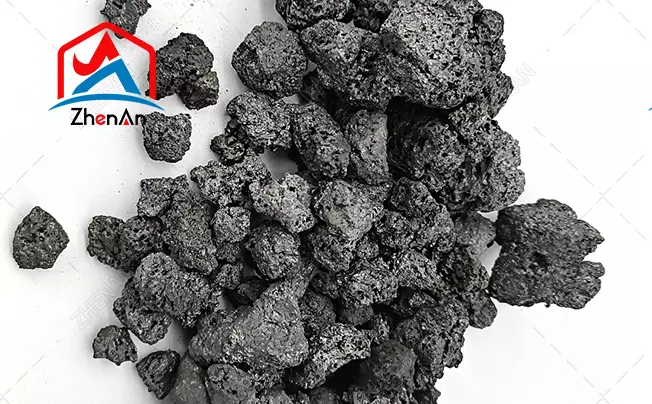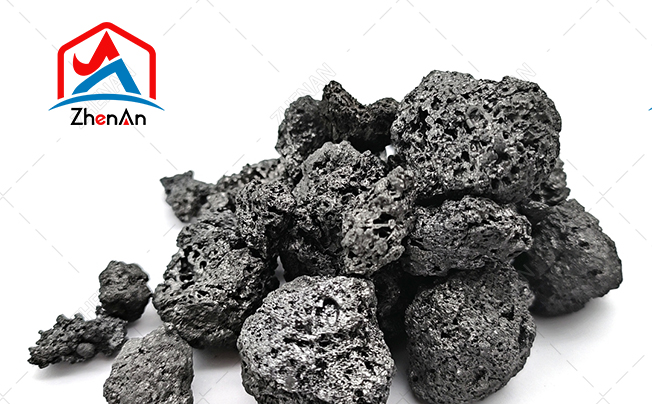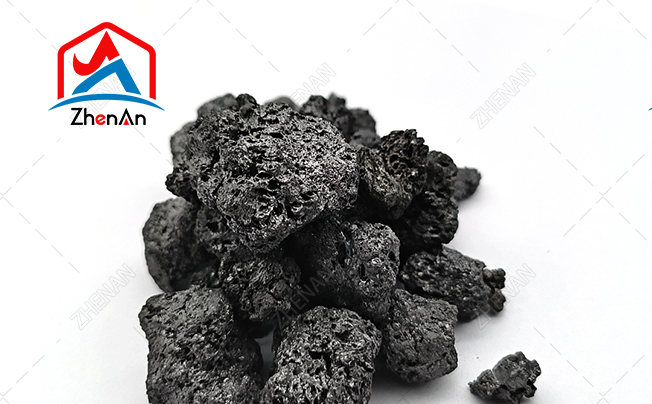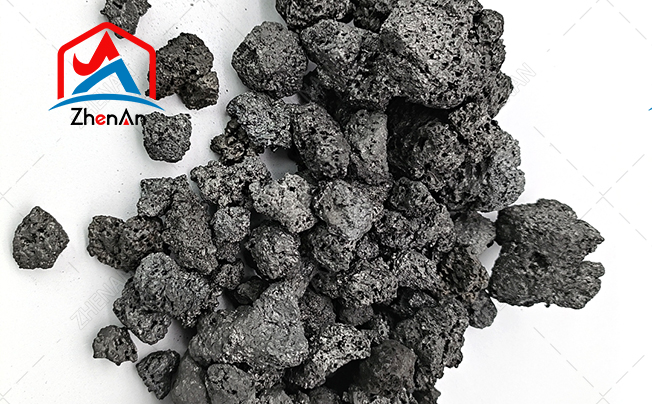Recent Product Posts





Calcined petroleum coke is a method of calcining petroleum coke or green coke when using graphite electrodes for steelmaking or anode paste (melted electrodes) for aluminum or magnesium production.
Calcined Petroleum Coke
Calcined Petroleum Coke Description
Calcined petroleum coke is a method of calcining petroleum coke or green coke when using graphite electrodes for steelmaking or anode paste (melted electrodes) for aluminum or magnesium production.
Petroleum coke is a black or dark gray hard solid petroleum product with metallic luster and porosity. It is a carbon body composed of tiny graphite crystals forming granular, columnar, or needle shapes. The components of petroleum coke are hydrocarbons, containing 90-97% carbon, and 1.5-8% hydrogen, and also contain nitrogen, chlorine, sulfur, and heavy metal compounds.
Calcined Petroleum Coke Parameters
| Type | Fix carbon (min. %) | Sulfur (max. %) | Ash (max. %) | Volatile matter (max. %) | Moisture (max.) | Size (mm) |
| CPC-02 | 98.5 | 1.5 | 0.5 | 1 | 0.5 | 2-5 |
| CPC-03 | 98.5 | 1 | 0.5 | 1 | 0.5 | 5-10 |
| CPC-04 | 98.5 | 0.6 | 0.5 | 1 | 0.5 | 10-25 |
| High carbon content, low ash, sulfur, phosphorus, high mechanical strength. | ||||||
| Size:1-3mm, 1-5mm, 1-10mm, 1-20mm | ||||||
| The monthly supply is about 5,000 tons with fast delivery. | ||||||
Calcined Petroleum Coke Advantages
Petroleum coke is a by-product when the feed oil in a delayed coking unit is cracked at high temperatures to produce light oil products. The output of petroleum coke is about 25-30% of the raw oil. Its low calorific value is about 1.5-2 times that of coal, its ash content is no more than 0.5%, its volatile content is about 11%, and its quality is close to that of anthracite coal.
Calcined petroleum coke (CPC) is a highly conductive dense carbon with extremely low resistivity and a fixed carbon content of approximately 99.5%.
The petroleum coke produced by delayed coking of the residue obtained from the crude oil distillation unit of the refinery is called raw petroleum coke or raw petroleum coke. The raw petroleum coke or raw petroleum coke calcined at a temperature of 12000°C to 13000°C is called calcined petroleum coke.
Calcined petroleum coke (CPC) is a by-product obtained from the coking unit of a crude oil refinery. Mainly used for manufacturing anodes in aluminum, steel, and titanium smelting industries.
Calcined petroleum coke is also used as a raw material for a variety of products such as aluminum, paints, coatings, and colorants. Calcined petroleum coke is a black solid material mainly composed of carbon, sulfur metal, and non-volatile inorganic compounds. It has the advantages of safe operation, transportation, storage, and low toxicity.
Manufacture And Use of Calcined Petroleum Coke
Calcined petroleum coke is used primarily in the aluminum industry to produce prebaked carbon anodes used in the smelting process.
It is also used as a basic raw material for the manufacture of graphite electrodes and as a raw material for the production of titanium dioxide.
ZhenAn's calcined coke is usually produced according to customer requirements.
Petroleum coke carburizer is a ferroalloy product with a combustion temperature of 1650-1730 degrees. At the same time, petroleum coke carburizer can also be used as a combustion aid by manufacturers. Petroleum coke carburizer has a high calorific value, and low volatile matter, moisture, and sulfur. Due to its high content compared to coal, it is often used by manufacturers to replace coal.
Petroleum coke carburizers are widely used and are used in steelmaking, casting, smelting, and other industries. Therefore, petroleum coke carburizers are usually one of the ferroalloy products purchased by manufacturers in large quantities. The market price of petroleum coke carburizers is relatively expensive. Therefore, the price of petroleum coke is the focus of manufacturers. In addition, the product quality of petroleum coke carburizer cannot be ignored.
Calcined Petroleum Coke Applications
Petroleum coke can be used as fuel, with a higher calorific value than coal; less volatile matter and ash than coal, but higher moisture and sulfur content than coal. It is often used to replace coal in cement kilns. According to statistics, about 38% of the petroleum coke produced in the world is used in the cement industry, and about 12% is used as industrial boiler fuel. Taking a cement factory with an annual output of 850,000 tons as an example, the economic analysis results comparing the use of 100% coal as fuel and the use of 50% coal and petroleum coke as fuel show that 18.6% of fuel costs can be saved every year. The investment required for dual fuel can be recovered in about one year.
Carburizing agents are used during casting, which can greatly increase the amount of scrap steel and reduce the amount of pig iron or eliminate the need for pig iron. In the feeding method of electric furnace smelting, the carburizer should be put together with scrap steel and another charge. Small doses can be added to the surface of the molten iron. However, it is necessary to avoid feeding large quantities of materials into molten iron to prevent excessive oxidation, resulting in an insignificant carburizing effect and insufficient carbon content in castings. The amount of carburizing agent added is determined according to the ratio and carbon content of other raw materials. Different types of cast iron require different types of carburizers according to needs. The characteristics of the additive itself are to select pure carbon-containing graphitized substances to reduce excessive impurities in pig iron. Appropriate selection of the carburizing agent can reduce casting production costs.
Competitive Advantage
Unparalleled expertise: With thirty years of practical experience we have an unparalleled understanding of the metalworking process, ensuring top quality in all our products.
Extensive product range: Our diverse product portfolio caters to various industrial needs, making us a one-stop solution for every metallurgical requirement
Quality Assurance: We implement strict quality control measures at every stage of production to ensure our products meet or exceed industry standards.
Customization: We understand that each customer's needs are unique. Our flexible production capabilities allow us to customize products to specific requirements
Global influence: With an extensive international trade network and experience, we promote the Wufeng import and export business, covering customers around the world.
Commitment to Sustainability: We attach great importance to sustainable practices in our production processes and strive to minimize our impact on the environment.
* We value your feedback! Please complete the form below so that we can tailor our services to your specific needs.